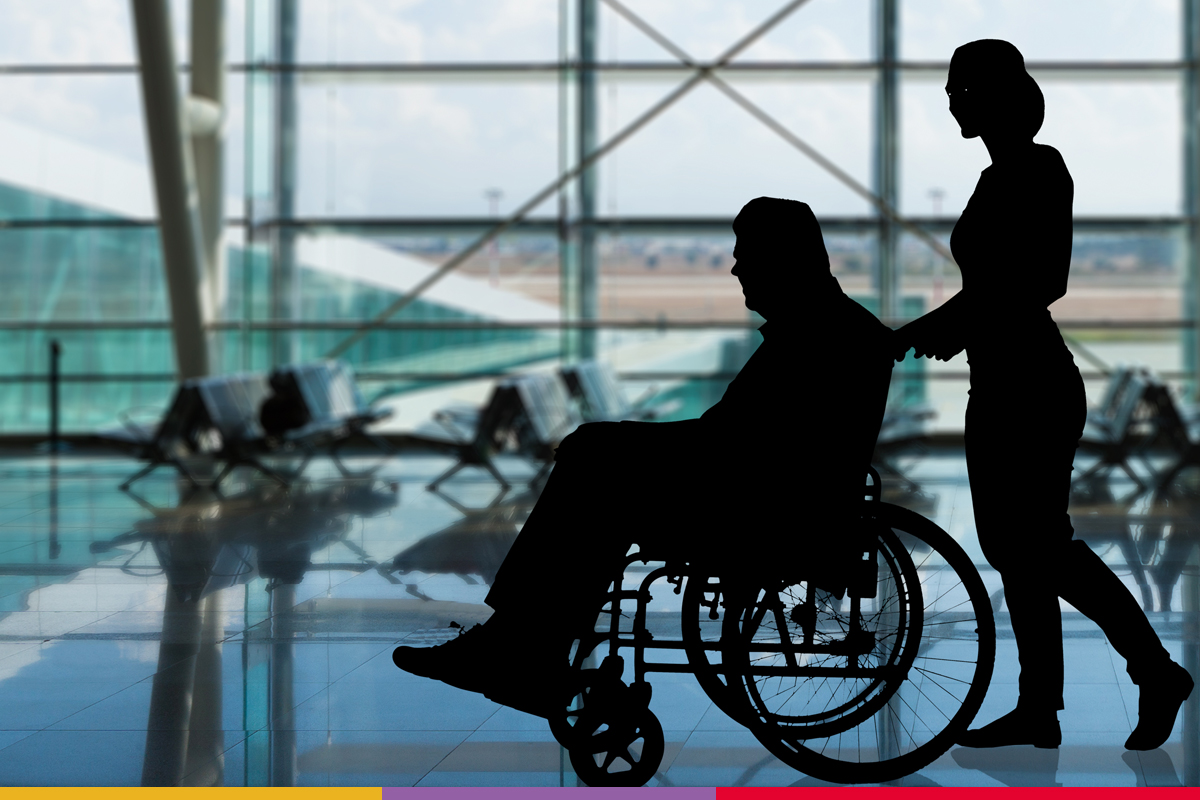The Centre for Human Rights, Faculty of Law, University of Pretoria, is concerned about ongoing discrimination on the basis of disability by airline carriers in Nigeria.
A pattern of discrimination
A few days ago, Dana Airlines refused to allow Dr Chike Okogwu to board its Abuja to Lagos bound aircraft. According to the Airline, its refusal to allow Dr Chike Okogwu to board was premised on the Airline’s “new policy” that forbids the flying of persons with disabilities on its aircrafts “at night.” This policy of Dana Airline introduces a new form of discrimination on the basis of disabilities within the Nigerian aviation sector. However, discrimination against persons with disability is not peculiar to the “new policy” of Dana Airlines. Some days before Dr Chike’s encounter with Dana Airlines, the Nigerian social media was inundated by video footage of a woman who was seemingly denied access onboard an aircraft because she was in a wheelchair.
In the past, there have also been several complaints by persons with disabilities about being disallowed from flying aboard aircrafts operated by different Nigerian airlines. In addition to the stigmatisation attitude of Nigerian airlines towards persons with disabilities, there have been general complaints about the absence of necessary accessibility aids such as ramps, bridges and other facilities to ensure smooth and accessible usage of Nigerian airports and aircrafts by persons with disabilities. The absence of accessibility aids in airports has resulted in the violation of several rights of persons with disabilities, such as the right to human dignity and self-esteem, the right to privacy, and gender-based sexual harassment and abuse, and financial exploitation.
Nigeria violates its obligations under UN human rights treaties by allowing discrimination on the basis of disabilities Nigeria is a state party to the Convention on the Rights of Persons with Disabilities (CRPD), which places an obligation on the government of Nigeria to take necessary measures against airport practices by Airlines that amount to discrimination on the basis of disabilities.
Article 1 of the CRPD enjoins state parties to ensure the full and equal enjoyment of all human rights and fundamental freedoms by all persons with disabilities, and to promote respect for their inherent dignity. Article 2 of the CRPD defines discrimination on the basis of disability as any distinction, exclusion or restriction on the basis of disability which has the purpose or effect of impairing or nullifying the recognition, enjoyment or exercise, on an equal basis with others, of all human rights and fundamental freedoms. It also includes denial of reasonable accommodation. The acclaimed new policy of Dana Airlines which restricts persons with disabilities from flying on its aircraft at night is evidently a denial of reasonable accommodation and an infringement of the provisions of the CRPD. Article 4 of the CRPD enjoins state parties to take all appropriate measures, including legislation, to modify or abolish existing laws, regulations, customs and practices that constitute discrimination against persons with disabilities. State parties have to take all appropriate measures to eliminate discrimination on the basis of disability by any person, organization or private enterprise. To this effect, there is an obligation on the government of Nigeria through the Aviation Ministry to compel Dana Airlines to abolish its discriminatory flight policies on the basis of disability.
Similarly, article 5 of the CRPD enjoins state parties to take all appropriate steps to ensure that reasonable accommodation is provided. To this effect, the absence of disability-friendly facilities in Nigerian airports amounts to a violation of article 5 of the CRPD and a denial of the right to equality and non-discrimination of persons with disabilities.
Nigeria violates its domestic law by allowing discrimination on the basis of disabilities
Section 1 of the Discrimination Against Persons with Disabilities (Prohibition) Act, 2018 (Persons with Disabilities Act), prohibits all form of discrimination against any person on the ground of disability. Governmental inaction in the face of discriminatory policies, such as that of Dana Airlines, violates the Persons with Disabilities Act.
By virtue of section 1 of the Persons with Disabilities Act, it is a criminal offence to discriminate against any person on the grounds of disability. To this effect, the policies and actions of Dana Airlines is a violation of section 1 of the Persons with Disabilities Act, and amounts to a criminal offence under the said Act.
Under Section 4 of the Persons with Disabilities Act, a public building shall be constructed with the necessary accessibility aids such as lifts and ramps and any other facility that shall make them accessible and usable by persons with disabilities.
Specifically, section 14 of the Persons with Disabilities Act imposes an obligation on all airlines operating in Nigeria to ensure the accessibility of their aircraft to persons with disabilities; make available presentable and functional wheelchairs for the conveyance of persons with disabilities who need them to and from the aircraft; ensure that persons with disabilities are accorded priority while boarding and disembarking from the aircraft. The section did not restrict the enjoyment of the accessibility rights by persons with disabilities to a specific time frame.
Call on the Nigerian government
Based on the above, the Centre calls on the Nigerian Government to:
- Direct Dana Airlines to abolish its “new policy” that discriminates against persons with disabilities;
- Take all necessary measures to put an immediate end to the ongoing acts of discrimination on the basis of disabilities by Nigerian airline carriers;
- nvestigate and prosecute culpable airline carriers in accordance with the Discrimination Against Persons with Disabilities (Prohibition) Act;
- Embark on necessary institutional reforms to ensure that Nigerian airports are accessible for persons with disabilities within the transitory period of five years provided for by the Discrimination Against Persons with Disabilities (Prohibition) Act;
- Embark on necessary institutional reforms to include accessibility strategies and disability inclusion policies in the Nigerian aviation sector.
For more information, please contact:

Tel: +27 (0) 12 420 6398
Fax: +27 (0) 86 580 5743
innocentia.mgijima@up.ac.za

Tel: +27 (0) 12 420 3810
Fax: +27 (0) 86 580 5743
foluso.adegalu@up.ac.za
